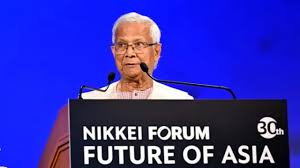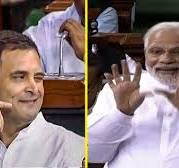by Malladi Rama Rao*
All is not well with his support base though Muhamad Yunus, the interim head of Bangladesh government, has managed to quell trouble with his resignation ploy.
And is visiting foreign shores in a signal to his detractors that he is taking in his stride fresh challenges from even unexpected quarters – namely teachers, government employees and business community besides turf wars among the criminals on the Dhaka scene.
Politically also, all is not well with the BNP supremo openly throwing a spanner in Yunus works to remain steadfast on his reform path.
Khaleda Zia has gone public with her war cry that democracy is being obstructed at every step.
She utilised the 44th death anniversary of her husband and former President Zia-ur-Rehman to bluntly convey her message that it would be difficult for her party to cooperate with Yunus if early national polls were not held.
Her eldest son, Tarique Rehman is more explicit.
He said: “We believe that after completing the proposed reforms—if their intentions are genuine—elections could be held by December. But it’s also possible to hold elections even before December.”
Put simply the BNP stands for immediate announcement of a specific roadmap for forming the next parliament by Dec 2025 through a credible electoral process.
Yunus has not endeared himself to the BNP with his remarks in Tokyo that not all but only one party is insisting on holding national elections by December.
There are few takers for the reform plank of Yunus.
This is a direct fall-out of the regime’s abject failure to stand by the Women’s Affairs Reform Commission that had recommended an end to gender discrimination and women empowerment.
Hefazat-e-Islam, and other Islamists of different hues denounced the Commission and created a narrative that religion is being attacked.
The regime quickly shelved the proposals even as Yunus has come under fire for going back on his assertion that he has always stood up for women’s rights.
What made the BNP and like-minded parties up the ante is the growing unpopularity of the interim government, which was hoisted by them as a saviour of democracy last year.
Sections of government employees and teachers are up in arms against the new law that empowers the regime to summarily dismiss anyone on charge of misconduct.
No formal inquiry is needed under the Public Service (Amendment) Ordinance 2025, which the employee unions term as a manifestation of authoritarianism and unilateral style of governance.
There is an element of uncertainty on the economic front too with investments not coming and consumer confidence plummeting.
Hundreds of factories have already shut down, with many more on the verge of closure.
Yet the regime is not engaging with the business community, which is worried over deteriorating business climate and increasing corruption.
Japan is also worried over the very same corruption phenomenon.
Tokyo has threatened to cancel its loan aid to Matarbari coal-fired power plant at Cox-Bazar.
Even as Yunus was visiting Tokyo, the Japan International Cooperation Agency, (JICA), has set June 4 as the deadline for Dhaka’s response to seven specific questions related to the project.
On the law-and-order front, Dhaka is rocked by turf wars amongst top criminals, who are also clashing with political leaders and activists in several areas.
A BNP leader Kamrul Ahsan (Sadhan) was shot dead in the war between two criminal gangs over control of cable TV and internet connections.
Law enforcement officials report that criminals and their associates are involved in attacks, assaults, illegal occupation, and extortion in areas like Moghbazar, Motijheel, Badda, and Gulshan.
In some places, these terrorists and their groups are operating as hired muscle for others, say media reports.
While on law and order, it is pertinent to report that the student groups supporting the Yunus regime have set on fire the Rangpur house of Jatiya Party Chairman GM Quader.
The Anti-Discrimination Student Movement (ADSM) and the National Citizen Party (NCP) are demanding the arrest of Quader and a ban on his Jatiya Party which was an ally of Sheik Hasina regime.
A similar protest-show engineered by the regime last month led to a ban on the Awami League.
(*Malladi Rama Rao is New Delhi-based senior journalist and avowed watcher of subcontinental geo-politics. He is now a senior analyst with the Deccan Council)




